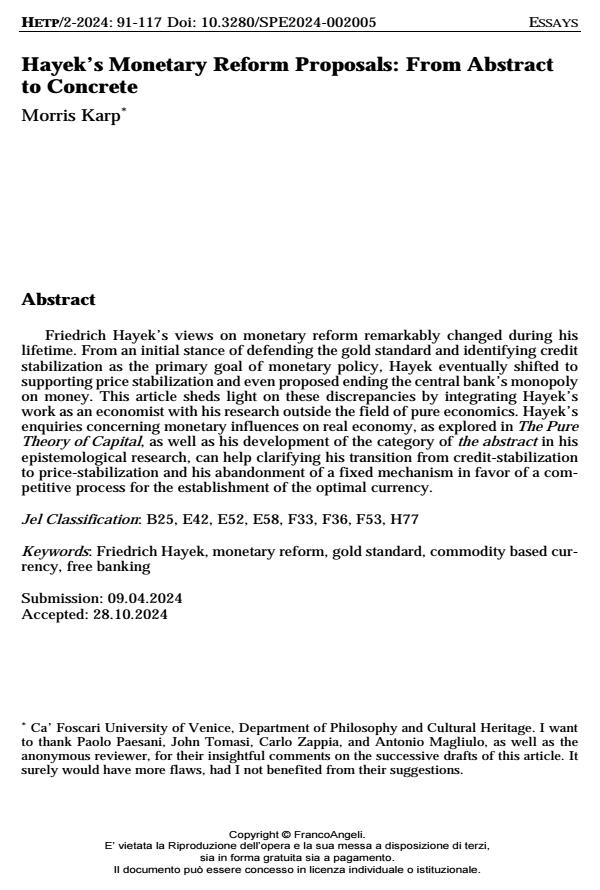Hayek’s Monetary Reform Proposals: From Abstract to Concrete
Titolo Rivista HISTORY OF ECONOMIC THOUGHT AND POLICY
Autori/Curatori Morris Karp
Anno di pubblicazione 2025 Fascicolo 2024/2
Lingua Inglese Numero pagine 27 P. 91-117 Dimensione file 134 KB
DOI 10.3280/SPE2024-002005
Il DOI è il codice a barre della proprietà intellettuale: per saperne di più
clicca qui
Qui sotto puoi vedere in anteprima la prima pagina di questo articolo.
Se questo articolo ti interessa, lo puoi acquistare (e scaricare in formato pdf) seguendo le facili indicazioni per acquistare il download credit. Acquista Download Credits per scaricare questo Articolo in formato PDF

FrancoAngeli è membro della Publishers International Linking Association, Inc (PILA), associazione indipendente e non profit per facilitare (attraverso i servizi tecnologici implementati da CrossRef.org) l’accesso degli studiosi ai contenuti digitali nelle pubblicazioni professionali e scientifiche.
Friedrich Hayek’s views on monetary reform remarkably changed during his lifetime. From an initial stance of defending the gold standard and identifying credit stabilization as the primary goal of monetary policy, Hayek eventually shifted to supporting price stabilization and even proposed ending the central bank’s monopoly on money. This article sheds light on these discrepancies by integrating Hayek’s work as an economist with his research outside the field of pure economics. Hayek’s enquiries concerning monetary influences on real economy, as explored in The Pure Theory of Capital, as well as his development of the category of the abstract in his epistemological research, can help clarifying his transition from credit-stabilization to price-stabilization and his abandonment of a fixed mechanism in favor of a competitive process for the establishment of the optimal currency.
Parole chiave:Friedrich Hayek, monetary reform, gold standard, commodity based currency, free banking
Jel codes:B25, E42, E52, E58, F33, F36, F53, H77
Morris Karp, Hayek’s Monetary Reform Proposals: From Abstract to Concrete in "HISTORY OF ECONOMIC THOUGHT AND POLICY" 2/2024, pp 91-117, DOI: 10.3280/SPE2024-002005